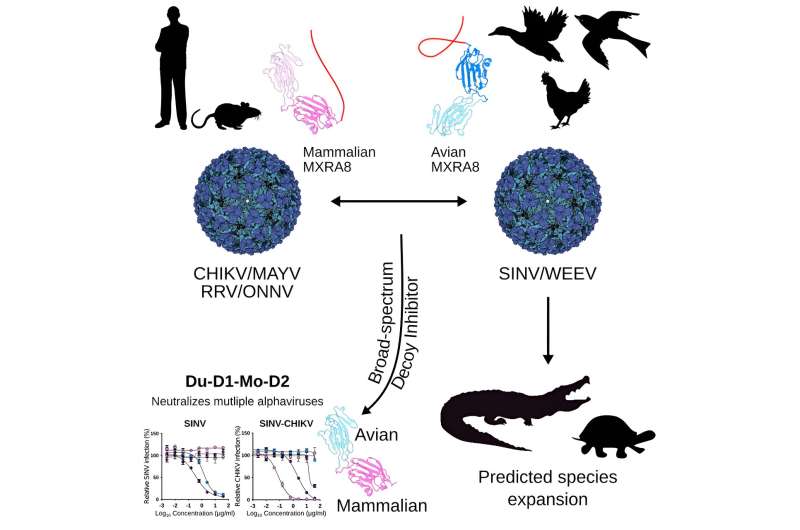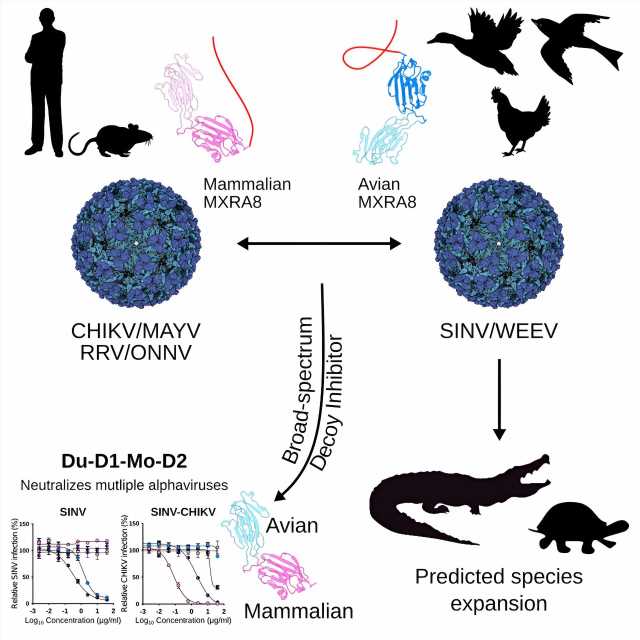
Researchers at Washington University School of Medicine in St. Louis have found an innovative way to block infection by a variety of alphaviruses, a group of mosquito-borne viruses that can cause joint and brain infections in people. The study, led by Michael S. Diamond, MD, Ph.D., the Herbert S. Gasser Professor of Medicine, and Daved H. Fremont, a professor of pathology and immunology, could be the first step on a path to a broad-spectrum therapy for these uncommon but serious infections.
The paper is published in the journal Cell.
“Alphaviruses impose a substantial burden of disease around the world, and we don’t have any antiviral agents to treat them,” Diamond said. “This could be a step toward a much-needed therapy.”
Most alphaviruses that sicken people fall into one of two subgroups: those causing encephalitis and those causing arthritis. In a previous study, Diamond, Fremont and colleagues discovered that the viruses that cause arthritis get into human and mouse cells by attaching to a molecule called MXRA8.
In this new study, they showed that some of the encephalitis-causing alphaviruses also invade cells by attaching to MXRA8, but only MXRA8 from birds, not mammals. Moreover, they did so using a completely flipped binding mode. The researchers created a hybrid decoy molecule by melding together parts of the avian (specifically, duck) and mammalian (mouse) versions of MXRA8. The decoy neutralized alphaviruses that cause encephalitis or arthritis and protected mice from infection, indicating a potential for therapeutic development.
More information:
Ofer Zimmerman et al, Vertebrate-class-specific binding modes of the alphavirus receptor MXRA8, Cell (2023). DOI: 10.1016/j.cell.2023.09.007
Journal information:
Cell
Source: Read Full Article






